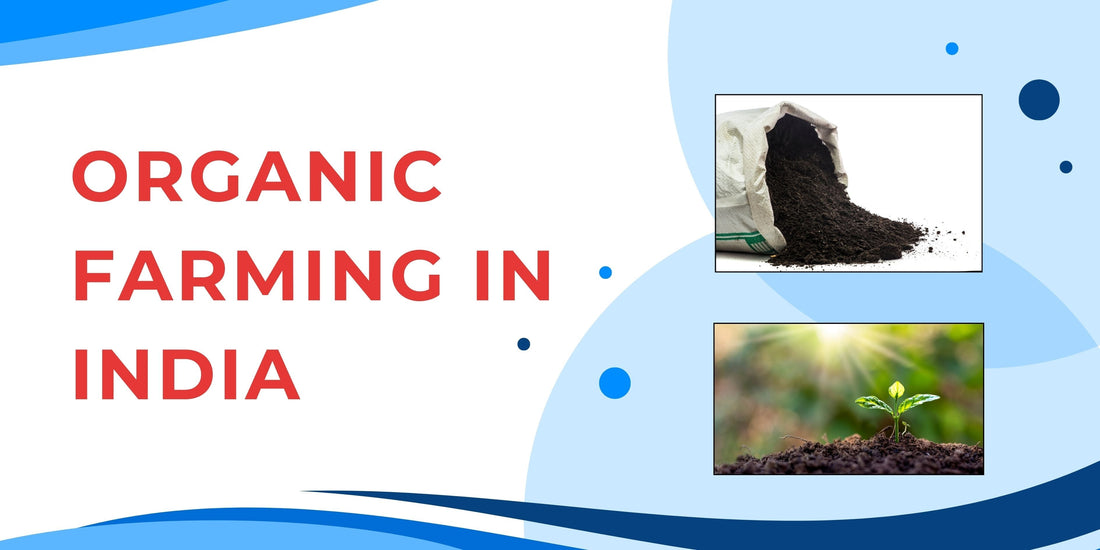
Organic Farming in India
Introduction
Organic farming in India is gaining rapid momentum as farmers and consumers alike are realizing the benefits of natural, chemical-free food production. With increasing awareness about health, soil fertility, and environmental sustainability, organic farming is no longer just a trend but a necessity for the future of Indian agriculture.
What is Organic Farming?
Organic farming is an agricultural practice that avoids the use of synthetic chemicals, pesticides, and fertilizers. Instead, it relies on natural inputs like biofertilizers, organic manures, biopesticides, and crop rotation to maintain soil health and crop productivity. The main objective is to produce safe, nutritious food while conserving natural resources and protecting the environment.
Growth of Organic Farming in India
India has emerged as one of the leading countries in organic farming:
- According to APEDA, India ranks first in terms of the total number of organic farmers.
- States like Madhya Pradesh, Rajasthan, Maharashtra, and Uttar Pradesh have taken significant steps in organic cultivation.
- Sikkim became the world’s first fully organic state in 2016, setting a benchmark for others.
Benefits of Organic Farming
- Healthier Produce – Free from chemical residues, organic food is safer and more nutritious.
- Soil Fertility – Organic practices enrich soil with organic matter, improving its structure and microbial activity.
- Environment Protection – Reduces water pollution, conserves biodiversity, and lowers greenhouse gas emissions.
- Better Market Value – Organic produce fetches higher prices due to growing demand in both domestic and export markets.
- Sustainability – Enhances long-term productivity without harming future generations.
Organic Inputs in Farming
To achieve success in organic farming, the use of eco-friendly inputs is essential. Some common organic inputs include:
- Biofertilizers (Azospirillum, Rhizobium, PSB, Trichoderma).
PSB:
1) https://www.khethari.com/products/phospho-power?_pos=3&_sid=8e02ccd4e&_ss=r
2) https://www.khethari.com/products/enhance-soil-fertility-with-ps?_pos=2&_sid=8e02ccd4e&_ss=r
KSB:
1) https://www.khethari.com/products/k-power-potash-mobilizing-bacteria?_pos=8&_sid=848fe4dd6&_ss=r
2) https://www.khethari.com/products/katyayani-k-mob-potash-mobilizing-bacteria-bio-fertilizer?pr_prod_strat=e5_desc&pr_rec_id=3c9d5dd2b&pr_rec_pid=7479920492621&pr_ref_pid=6837054242893&pr_seq=uniform
Rhizobium: 1) https://www.khethari.com/products/rhizo-power-rhizobium-energy-for-seeds?_pos=2&_sid=c75f90be4&_ss=r
2) https://www.khethari.com/products/katyayani-rhizogen-rhizobium-spp-nitrogen-fixing-biofertilizer?_pos=1&_sid=c75f90be4&_ss=r
- Vermicompost and Farmyard Manure (FYM)
- Biopesticides (Neem oil, Pseudomonas, Beauveria, Trichoderma)
- Green Manures (Sunhemp, Dhaincha)
These inputs not only protect crops but also maintain ecological balance.
Challenges in Organic Farming
Despite its advantages, organic farming in India faces challenges:
- Lower yields compared to conventional farming during the initial years.
- Lack of proper awareness and training for farmers.
- Limited availability of organic inputs in remote areas.
- Certification process is lengthy and costly.
Government Support for Organic Farming
The Indian government promotes organic farming through schemes like:
- Paramparagat Krishi Vikas Yojana (PKVY)
- National Programme for Organic Production (NPOP)
- Mission Organic Value Chain Development (MOVCD) for North Eastern Region
These initiatives provide financial support, training, and certification assistance to farmers.
Conclusion
Organic farming in India is not just an alternative but a promising pathway towards sustainable agriculture. By adopting organic inputs and practices, farmers can secure better soil health, higher profits, and a greener environment. As consumer demand for organic products continues to rise, India is well-positioned to become a global leader in organic food production.
